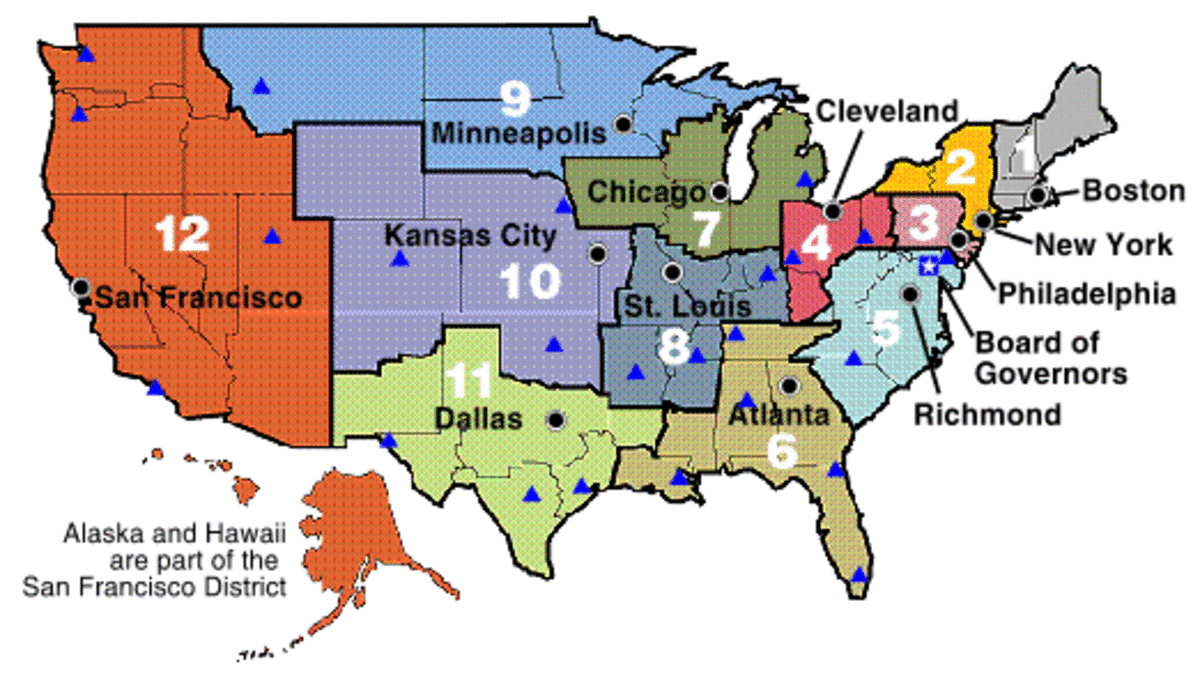The Bilderberg Conspiracy - why the illuminati and freemasons are irrelevent
The term Bilderberg has become synonymous with conspiracy and New World Order, though it is largely unheard of beyond the circles of conspiracy theorists. The group is an assortment of bankers, politicians, media moguls, and royalty who meet once a year to discuss global events. The details truly are that vague, there is no complete list of conference attendees and rumors abound regarding the identity of the participants. Wikipedia identifies Donald Rumsfeld, and Peter Sutherland (former EU Commissioner and Chairman of Goldman Sachs and British Petroleum) as active Bilderberg Group members. Bill Clinton is rumored to have participated in the most recent conference - and apparently a Drexel University student’s question of his participation earned him a visit from the secret service.
Membership seems to be revolving - some are life members, while some country representatives rotate each year. The group’s size is approximately 130 members at each annual meeting.
What do they discuss: New World Order? How to keep the black man down? Interaction with extra-terrestrial life? Despite the presence of media moguls such as Rupert Murdoch and journalists such as Peter Jennings and Bill Moyers, the media never reports the content of discussions.
Rumored to have attended:
Notable US Political attendees have included:
Former Presidents Bill Clinton, George H.W. Bush and Gerald Ford
Former Vice Presidents Dan Quayle, Walter Mondale and Nelson Rockerfeller
Former Secretaries of State Colin Powell and Henry Kissinger
Former (and current) President(s) of the World Bank Paul Wolfowitz, Robert McNamara, and Robert Zoellick
Current United States Senators:
Hillary Clinton, Chris Dodd, Jay Rockerfeller, Kay Bailey Hutchison, Chuck Hagel,and Dianne Feinstein
Former United States Senators:
John Edwards, George J Mitchell, and Adlai Stevenson III
Other:
Former Democratic Party Chairman: Terry McAuliffe
Former Republican Party Chairman: Ken Mehlman
US political participants have included a diverse cross-section of hundreds of former Senators, Congressmen, Treasury Secretaries, National Security Advisers, Governors and Ambassadors; most participated in only 1 conference.
Also represented are some notable corporate leaders and private citizens:
Lord Conrad Black - Chairman of Hollinger International (recently sentenced to 6 yrs in prison)
Louis V. Gerstner - Former Chairman of IBM; Current Chairman of the Carlyle Group
Eric Schmidt - Chairman and CEO of GOOGLE
Josef Ackermann - CEO of Deutsche Bank
Dwayne Andreas - Chairman and CEO of Archer Daniels Midland
Rupert Murdoch - Chairman and CEO of News Corp.
Lloyd Blankfein - CEO of Goldman Sachs
Melinda Gates - Co-Chair of the Bill & Melinda Gates Foundation
The Media:
Bill Moyers - Journalist, Public Broadcasting Service
Peter Jennings - Journalist, ABC News
Charlie Rose - Journalist, Public Broadcasting Service
Martin Wolf - Journalist, Financial Times
Paul Gigot - Editor, Wall Street Journal
I like the diversity of ideology of the US participants, and looking at the full list, it seems a majority of the group represents the US. If this group is attempting to take over the world, and I’m satisfied that US interests are being represented.
Anytime the influential and powerful collude it seems to draw ire and suspicion from the general public. Conspiracy theories are often dismissed citing lack of evidence and this absence of evidence is often construed as evidence of absence . A belief in conspiracy is entirely reasonable given the common definition: two or more people colluding in secret. Our government indicts people on conspiracy related charges daily; the Mafia does exist in some form, and groups of politicians often make back-room deals to pass and/or block legislation and shape policy.
Does this implicate the Bilderberg Group as propagators of a New World Order? The pragmatic answer is of course not. Despite the secrecy surrounding Bilderberg membership it is rational to assume that their members have some degree of diversity of ideology, ethnicity, and nationality. The individuals’ identity and personal concentration of power make it unlikely that full collusion is even possible. This does not exclude the possibility that some members of the group may collude, but individuals are especially wary of relinquishing sovereignty, lowering the likelihood of a cohesive “New World Order”. The mainstream media does not report on the conference to facilitate openness of discussion; a more plausible scenario than other nefarious theories, meaning its more likely that they meet to discuss global trends and that the individual members discuss adaptation strategies with their national, political, and industrial counterparts - considerably less cohesive than a massive New World Order conspiracy.
I often wonder why conspiracy theories feed our fear and paranoia; it seems counter-intuitive. On a psychological level it seems that there are diametrically opposing views as to how an individual responds to a conspiracy theory, and their subsequent endorsement or rejection of the theory.
1.) The conspiracy psychologically satisfies your perception of the world. The world is complex, and global events often cause confusion, especially when accurate and objective information is unavailable. You either believe that rationality and order is the natural state, or we exist chaos. Indulgence in the conspiracy can be calming - the assurance that somebody, somewhere, has a plan (much like a belief in God). Proponents of conspiracy theories that fall within this paradigm generally believe the conspiring agents are acting (or believe they are acting) with benevolent intentions. Opponents of the conspiracy theories in this paradigm reject the theory wholesale - they do not dispute the conspiracy is occurring, but rather refuse to acknowledge specific events as evidence of the conspiracy or the intention of the conspirators. Either they believe the natural state of affairs is order and rationality - and thus forces exist to check conspiracies or they find insufficient evidence to acknowledge an active conspiracy. Similarly, if they believe that chaos is the natural state, the conspiracy becomes impotent, unable to exercise control.
2.) The conspiracy satisfies your personality. The belief in the conspiracy correlates to the individuals’ perception of free-will. Belief in the conspiracy may translate to the perception that the conspiracy impedes an individual’s free will, potentially serving as an external cause for events outside of the subject’s control, or an indemnification of the individual that justifies their passive acceptance of the situation. Rejection of the theory is then either an exercise in free will or the individual’s belief of the absence of free will.
The real question is: Where’s the beef? Humans are social beings, collusion and conspiring are inherent to our nature. The fear, anxiety and sensational nature of conspiracy theories seem to be product of psychological tension rather than conspiratorial policy.
Conclusion:
1.) Extreme Pessimism: Assume the agents of conspiracy act only in their own self-interest; then it is only a matter of time before other forces check their progress. This is not to say the conspiring agents actions won’t directly effect our lives, they most certainly will, but their self-serving policy will be diametrically opposed to other interests, and it would seem natural that both sides live and die by the organic ebb and flow of power and influence.
2.) Extreme Optimism: Assume the conspiring agents are acting with benevolent intention. Again, their actions will certainly affect our lives, perhaps even negatively. Once again, their policy will be diametrically opposed to other interests, and similar to the nefarious agents, their power will wane according to the fluid nature of power.
For some fun reading on the nature of power - check out this Wikipedia article on Michel Foucault.








